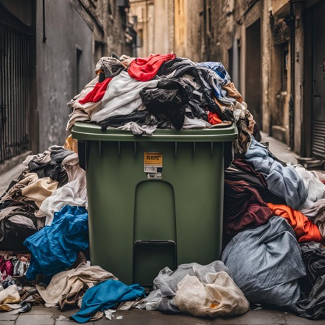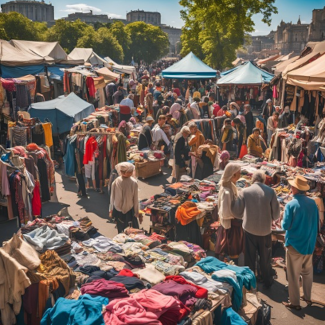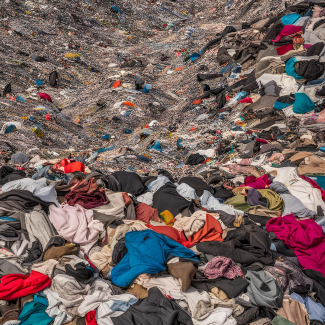P2W7: Second Life of Objects
backEvery year, Bengaluru throws away over 1 million tons of textiles! Most of it comes from homes and ends up mixed with other trash, making it dirty and hard to reuse. What’s worse? These clothes often land in dumping yards or get burned, causing pollution.
To tackle this, Hasiru Dala started the "Hasiru Batte" (Green Cloth) project. They discovered that 7-12% of collected dry waste was old textiles. However, managing textile waste is not easy.
The Big Challenges
 |
- | No Separate Textile Collection
Clothes are mixed with dry waste, making even reusable garments dirty and hard to clean. Finding markets for recycled textiles becomes tricky. |
 |
Traditional Barter Systems Are Dying
In the past, people exchanged old clothes for kitchen utensils. But with more apartments and fewer door-to-door buyers, this system has shrunk. Now, reusable clothes are sold in flea markets. |
|
 |
Landfill and Burning Issues
Non-reusable textiles often end up in landfills or are burned as fuel. But clothes aren't good fuel, they don’t burn efficiently and aren’t worth the cost of transporting to distant factories. |
Creative Solutions 🌟
Clean Collection Systems: 🧹 Hasiru Dala is working to make sure old clothes are collected separately from other trash. This helps recyclers and keeps reusable clothes from being thrown away.
Circular Economy: 🔄 Old clothes can be turned into new fabric! For example, special machines can change old clothes into yarn, so they can be reused instead of being thrown out. You can watch an example of this on Youtube 🎥.
Supporting Waste Pickers: 🚮 By sorting clothes better, waste pickers have an easier job, and they can help stop clothes from ending up in landfills. 🌱
What’s Next?
Bengaluru has the chance to be a leader in recycling textiles. It just needs teamwork—cleaner systems, better recycling tech, and a little creativity. 🌱👕
What can you do? Start at home! Don’t toss your clothes. Instead, donate, repurpose, or try cool DIY ideas. Every small step counts.
- What happens to old clothes in your house? Do you throw them away or try to reuse them?
- How do you feel about the idea of clothes ending up in landfills or getting burned? Why is it bad for the environment?
- Do you think it's important to collect textile waste separately? How could that help people reuse more clothes?
- Have you ever exchanged old clothes for something like kitchen utensils, like the traditional barter system? What do you think about that idea?
- What are some ways you can help reduce textile waste in your own life? Could you donate or recycle your old clothes instead of throwing them away?
- How do you think technology could help recycle old clothes? What kind of new products could we make from recycled fabric?
